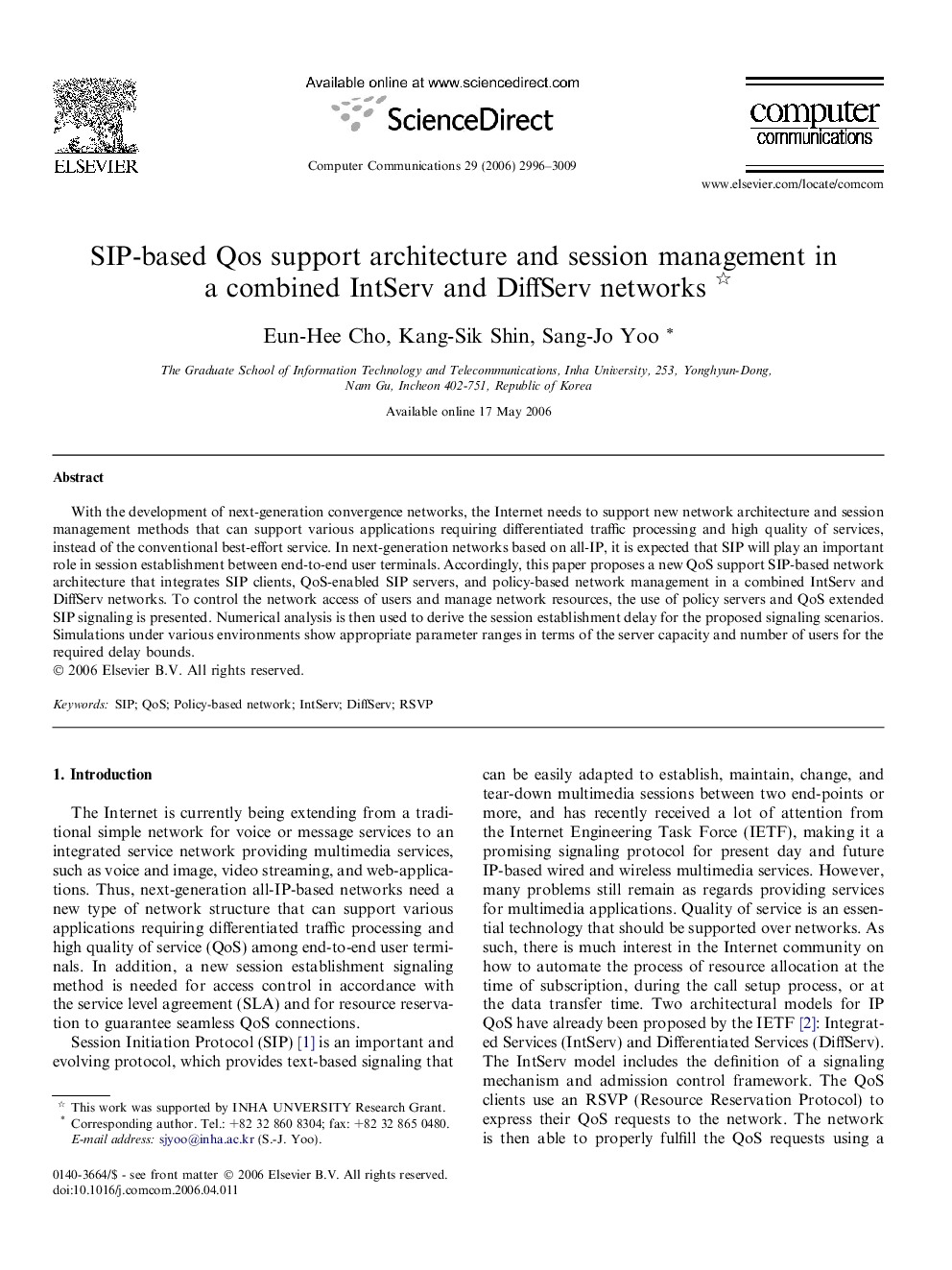| Article ID | Journal | Published Year | Pages | File Type |
|---|---|---|---|---|
| 450618 | Computer Communications | 2006 | 14 Pages |
With the development of next-generation convergence networks, the Internet needs to support new network architecture and session management methods that can support various applications requiring differentiated traffic processing and high quality of services, instead of the conventional best-effort service. In next-generation networks based on all-IP, it is expected that SIP will play an important role in session establishment between end-to-end user terminals. Accordingly, this paper proposes a new QoS support SIP-based network architecture that integrates SIP clients, QoS-enabled SIP servers, and policy-based network management in a combined IntServ and DiffServ networks. To control the network access of users and manage network resources, the use of policy servers and QoS extended SIP signaling is presented. Numerical analysis is then used to derive the session establishment delay for the proposed signaling scenarios. Simulations under various environments show appropriate parameter ranges in terms of the server capacity and number of users for the required delay bounds.
